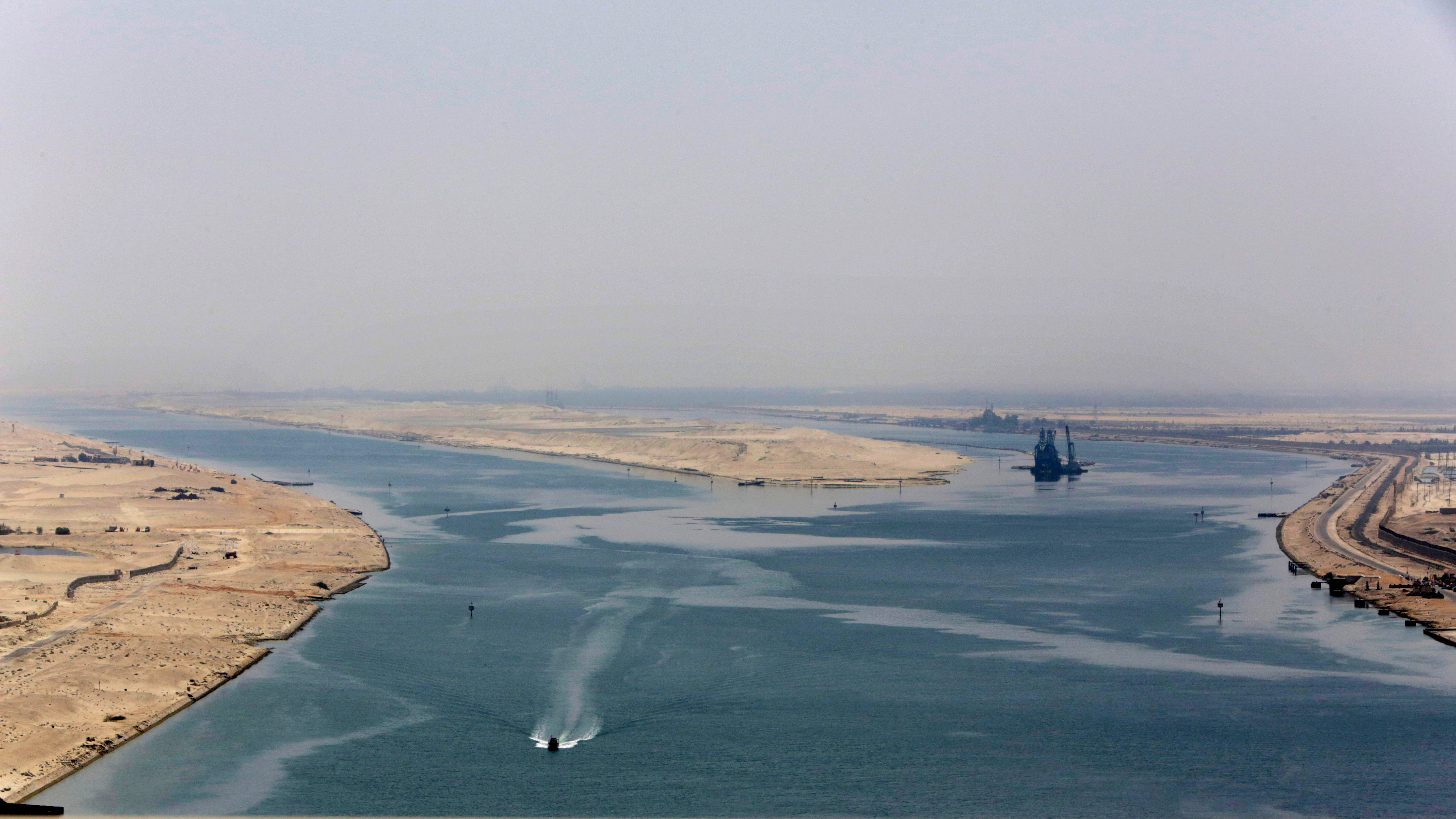China says it's working to de-escalate tensions in the Red Sea that have upended global trade
China, the world's biggest exporter, says it is deeply concerned about tensions in the Red Sea that have upended global trade by forcing many shippers to avoid the Suez Canal

China, the world’s biggest exporter, says it is deeply concerned about tensions in the Red Sea that have upended global trade by forcing many shippers to avoid the Suez Canal.
China has been in “close communication with all parties concerned and making positive efforts to de-escalate” the situation in which Iran-backed Houthi rebels have attacked international ships with missiles, Foreign Ministry spokesperson Wang Wenbin said at a daily briefing on Wednesday.
“China calls for a halt to the harassment and attacks on civilian ships and urges all relevant parties to avoid fanning flames in the area and jointly ensure the safety and security of the route in the Red Sea,” Wang said.
Since November, the Iranian-backed Houthis have launched at least 34 attacks on shipping through the waterways leading up to Egypt’s Suez Canal, a vital route for energy and cargo coming from Asia and the Middle East onward to Europe.
The Houthis, a Shiite rebel group that has held Yemen's capital Sanaa since 2014 and been at war with a Saudi-led coalition backing Yemen’s exiled government since 2015, link their attacks to the Israel-Hamas war. However, the ships they’ve targeted increasingly have tenuous links to Israel — or none at all.
“We are deeply concerned about the recent escalation of the Red Sea situation. The Red Sea is an important international trade route for goods and energy,” Wang said.
Wang also referenced the Gaza conflict, linking it to the Red Sea tensions, saying, “The priority now is to end the fighting in Gaza as soon as possible to avoid further escalation and prevent the situation from getting out of control.”
“China is willing to work with all parties to cool down the situation and maintain security and stability in the Red Sea,” Wang said.
China exported more than $3.5 trillion in goods in 2022, the last year for which figures were available. That was about $1.5 trillion more than the United States, the world's No. 2 exporter.
Some of the world’s largest container shipping companies and oil giant BP have been sending vessels on longer journeys around Africa that bypass the Red Sea. In response to the growing impact on global trade, the United States and a host of other nations have created a new force to protect ships.
At least 90% of the container ships that had been going through the Suez Canal are now rerouting around Africa and the Cape of Good Hope, according to Drewry, a maritime research consultancy.
The cost to ship a standard 40-foot container from China to northern Europe has jumped from $1,500 to $4,000, according to the Kiel Institute for the World Economy in Germany. But that is still far from the $14,000 seen during the pandemic.
The delays contributed to a 1.3% decline in world trade in December, reflecting goods stuck on ships rather than being offloaded in port.
The U.S. and its allies have been striking targets Washington has said are involved in the attacks against U.S. forces in Iraq and Syria and were threatening U.S. military and commercial vessels in the Red Sea.
China has maintained close ties with Iran, largely based on investment and oil imports, and last year hosted talks resulting in the restoration of Tehran's diplomatic relations with Saudi Arabia.
While seeking a peace-making role in the Middle East, Beijing has shied away from committing to any particular side, diminishing its credibility in the eyes of critics.
Wang said China believed the United Nations Security Council “has never authorized any country to use force against Yemen and calls for a genuine respect for the sovereignty and territorial integrity of Red Sea coastal countries, including Yemen.”
Bookmark popover
Removed from bookmarks